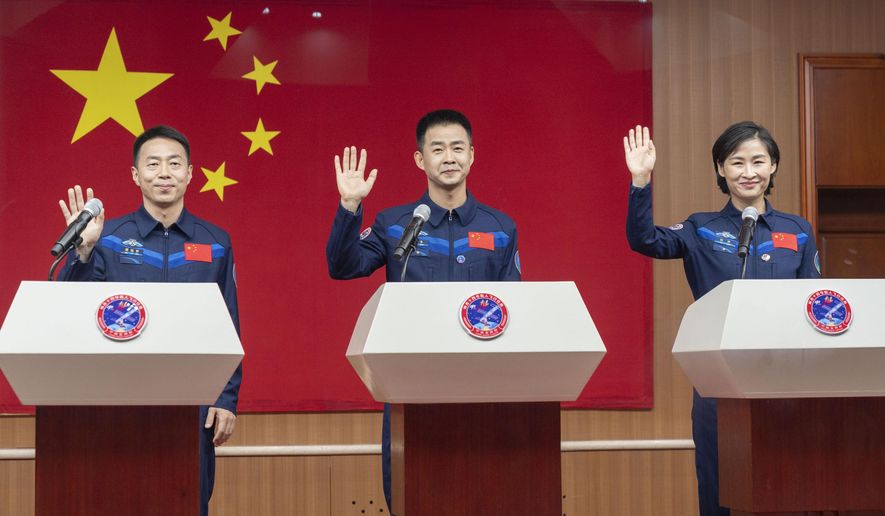The Cold War space program was often characterized as a campaign between the U.S. and the Soviet Union with both sides claiming victories: Moscow was the first to launch a man into space while Washington landed the first man on the moon.
But more than 50 years after Neil Armstrong stepped off Apollo 11’s lunar module onto the Sea of Tranquility, NASA administrator Bill Nelson says the U.S. is in another “space race.” This time with China, which the U.S. space chief said has made no secret that its ambitions are not limited to earthly influence and power.
“We must be very concerned that China is landing on the moon and saying: ’It’s ours now and you stay out,’” Mr. Nelson said in an interview published Saturday in the German newspaper Bild.
Mr. Nelson, a former longtime Democratic senator from Florida, was the second member of Congress to fly in space. In 1986, he was a payload specialist aboard the space shuttle Columbia.
China’s space program, at its heart, is a military space program, Mr. Nelson said.
“China is good. But China is also good because they steal ideas and technology from others,” he said, according to Bild.
The U.S. was the first, and so far only, country to put a human on the surface of the moon. But NASA has not been back since 1972 following the Apollo 17 mission. The U.S. space agency is planning a return to the moon with its Artemis program. NASA says it will return astronauts to the lunar surface by 2024, paving the way for future missions to Mars.
A spokesman for China’s Foreign Ministry rejected Mr. Nelson’s criticisms of China’s space program, saying Beijing has no intentions of colonizing the moon and has consistently supported joint international exploration of space. China is planning unmanned research missions to the moon’s south pole some time this decade.
“This is not the first time that the NASA administrator has lashed out at China in disregard of facts,” ministry spokesman Zhao Lijian told reporters Monday during a press briefing. “Some U.S. officials have spoken irresponsibly to misrepresent the normal and legitimate space endeavors of China.”
• Mike Glenn can be reached at mglenn@washingtontimes.com.




Please read our comment policy before commenting.